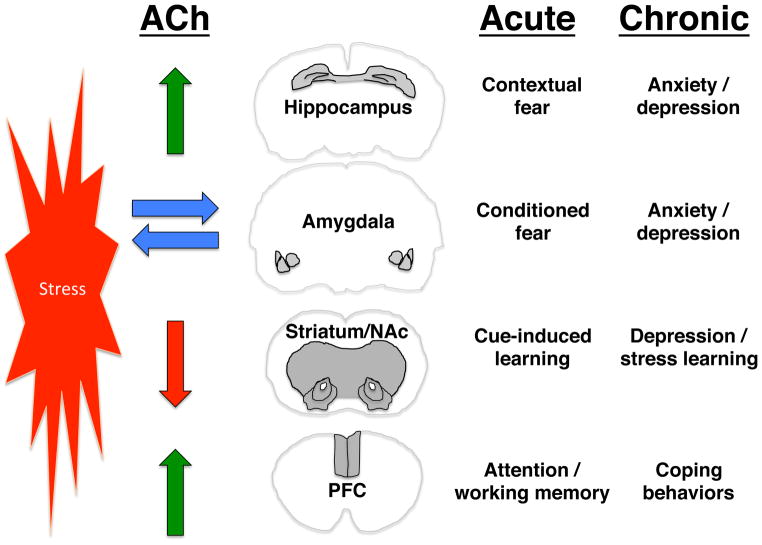Figure 2.
Circuits involved in cholinergic modulation of mood and anxiety. The schematic demonstrates the differential effects of stress on ACh release. Stress induces increases in ACh release in the hippocampus and prefrontal cortex (PFC), has less of an effect on the already high levels of ACh in the amygdala, and decreases firing of the cholinergic interneurons in the striatum/nucleus accumbens (NAc). Relief of stress also increases ACh release in the PFC. The acute effects of stress-induced changes in ACh signaling area likely to be adaptive and to lead to behaviors that promote learning to change behavior and avoid stressors, whereas chronic stress may result in maladaptive plasticity downstream of ACh signaling that can lead to anxiety and mood disorders.

